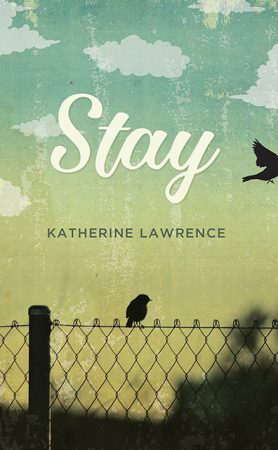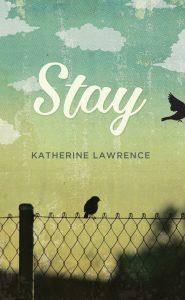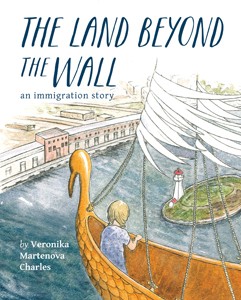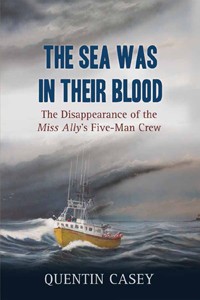
Stay by Katherine Lawrence
Stay by Katherine Lawrence (Coteau Books)
Novels written in verse, especially when aimed at a young audience, are tricky to pull off successfully. On the one hand, tweens are still open to non-linear prose, thanks to their fairly recent graduation from nursery rhymes and picture books. On the other, if an author stretches too far into the poetic, strays too far from concrete imagery, she risks alienating readers not quite equipped to handle more esoteric language.
With her debut middle-grade novel in verse, Stay, Saskatoon poet Katherine Lawrence pulls the metaphorical rabbit out of the hat, creating a touching, balanced portrayal of a young girl dealing with her parents’ separation, her father’s cancer diagnosis, and her unyielding (and long-unfulfilled) desire for a pet dog.
The book is presented as a series of diary entries by eleven-year-old Millie, and Lawrence unleashes her poetic talent to set the scene with the book’s opening lines: “My twin is buried in a wooden box / lined with white silk / soft as dandelion fluff, the stuff I blow / to the wind, to you, / Billy / it’s me, Millie, your weather girl reporting graveside / about the latest family squall. / Did you hear the storm last night?”
Though not every entry is explicitly addressed to him, it’s clear that the diary is written to Billy (whom we later learn died in utero), as Millie sometimes crafts conversations with him. That Millie has created a voice for her dead brother is both tragic and relatable; he has become her imaginary friend and she channels him to ask herself probing questions and commiserate when her life takes unfortunate turns.
The beauty of Stay rests wholly in Millie’s narrative voice. Lawrence creates a character who is equal parts wounded child and old soul. Her use of language is age-appropriate and possessed of a clarity that does not detract from its eloquence. The mix of poem, short prose, and conversations between Millie and Billy forms a story that is full of energy and emotion.
The central drama in Millie’s life is the separation of her parents. Millie knows her mother is having an affair (the texts Millie transcribes from her mom’s phone provide a succinct yet complete narrative arc for the relationship), and while we don’t get as much of an impression of her father, her mother is rendered as a bit of a harsh figure: not totally unsympathetic, but not the comfort Millie needs during such a difficult adjustment.
Second only to this trauma is the continued refusal by Millie’s parents to get a family dog. When her mother finally relents, Millie learns that having a puppy is not as easy as she’d thought, and begins to doubt her decision. Help comes from a surprising source, and while the novel doesn’t end with all bows tied neatly, the conclusion is satisfying in its realistic portrayal of a family dealing with fracture, and healing in a manner that leaves scars, but no longer causes constant pain.
Originally published in the Humber Literary Review, Issue 4, vol 1 (Spring/Summer 2017)


